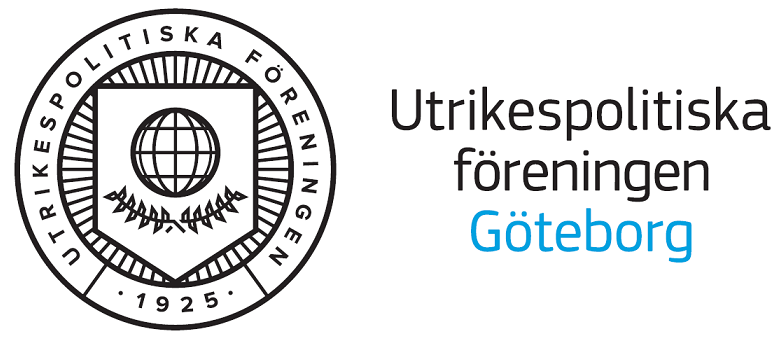Paris – La Ville de Lumière?
***
Member correspondent is a segment of posts on our blog where members of The Society of International Affairs who live or work abroad write about foreign politics. Opinions in the blog posts does not necessarily reflect the opinions of The Society of International Affairs in Gothenburg.
***
About the author: Hannes Floman, politics student with international orientation and former contributor to ‘Utblick’ (the magazine of the Society of International Affairs in Gothenburg). Current intern at the Political-Economic Affairs Section of the Swedish Embassy in Paris.
***
Cosmopolitan metropolis Paris (at least this is how the French would describe their capital) is often labelled as la ville de lumière (the city of light). However there is competition for this nickname by (among others I’m sure) the ancient Roman Empire and later catholic hub that we know as Rome. Nevertheless, as someone once told me, while Rome is the city of golden light, Paris is the city of (white) “enlightening” light.
This epithet has been well-deserved by such an intellective centre, offering throughout hundreds of years a myriad of eminent intellectuals in the shapes of philosophers, writers and artists such as Montaigne, Descartes, Rousseau, Matisse and Sartre, among many more. Yet, these days, the great names are mostly found on pompous buildings, grand monuments and – foremost – in the crypt of Panthéon or on the tombs of Père Lachaise.
Although the great French literary legacy may be well preserved and well known to its heirs (who very well may be spotted reading a classic – although it might have been transformed into a Bande déssinée [comic book] in the metro or in a café or in a park), the illusion will be shattered at the glimpse of the front page of one of the country’s many newspapers.
Recently the Swedish ambassador to France on twitter concluded his attempt to ”synthesize” and ”decrypt” recent French scandals for the Swedish government to be un échec total (a total failure). While finding myself equally as unable to grasp – or even less so to explain – the events, his words seem to quite well encapsulate the situation.
In a series of scandals that each one has overshadowed the other, you might as well believe you’re in a roman Bunga-bunga party or a mafia showdown.
Initially the main opposition leader Jean-François Copé allegedly has favoured a company founded by his friends and close co-workers from his cabinet during his time as a minister. It has turned out that the company, during the campaign for Sarkozy’s re-election as President in 2012, overcharged the conservative party, whereafter the campaign exceeded the limit of allowed funding by 11 million € and accordingly the President had to turn to his voters for contributions.
However this was soon forgotten about, as it turns out that the now ex-President Sarkozy – during his Presidency in the Élysée Palace – was secretly recorded by his closest advisor, who (the poor fellow) upon the leakage of the tapes explained he was unluckily robbed of them some time ago.
As if this treachery by a close companion who had also been the one to radicalize the discourse of Sarkozy’s 2012 campaign – where the then-President for instance came to slip some racial slur against Romani people – wasn’t enough, Sarkozy has also been bugged by the judiciary. This after allegedly having accepted funding for his 2007 Presidential campaign by the Libyan Ghaddafi-regime, and some other corruption business he’s been caught up in.
Fortunately, there’s no need for white, privileged and powerful men to suffer when there are women to blame. The Minister of Justice, Christiane Taubira, claimed to be totally unaware of this later business, although it is the lawful procedure for her to be informed, which only the day after her statement was reasserted by the Prime Minister – Jean-Marc Ayrault – confirming that they both were informed about the procedure.
And so a happy ending at last. The lies of Mme Taubira have been revealed and the witch has denounced, no man shall be punished. Then again, who could expect media to keep track of two things at once, after all it is already quite incapable of covering more than one international crisis going on at the same time, making whole countries such as Syria or the Central African Republic seem to have disappeared.
Although scandals are commonplace for the French, even for them recent events have been somewhat excessive. This unlike the infidelity affair of President Hollande earlier this year, where he left his journalist partner Valérie Trierweiler (for whom he had earlier left the socialist Presidential candidate of 2007, Ségolène Royale), for the actress Julie Gayet. And as he in a romantic and most French way stated, a while back, answering yes to a question on whether Mme Trierweiler was the woman of his life, he had not lied. He merely should have added “right now”. Monsieur le Président is, of course, no way near the big boy’s club of DSK and Il Cavaliere.
Needless to say, with the Ides of March approaching I superstitiously half-expected someone bathing in their own pool of blood at the Luxembourg Palace (the French Senate) due to daggers drawn, and consequently the reinstitution of an autocratic regime. Somewhat disappointed, however, I am convinced this non-event can be explained either by the weekend-absence of the upper chamber or an inversed course of events – France already underwent an imperial era and is thence on the brink of collapse.
Hannes Floman

